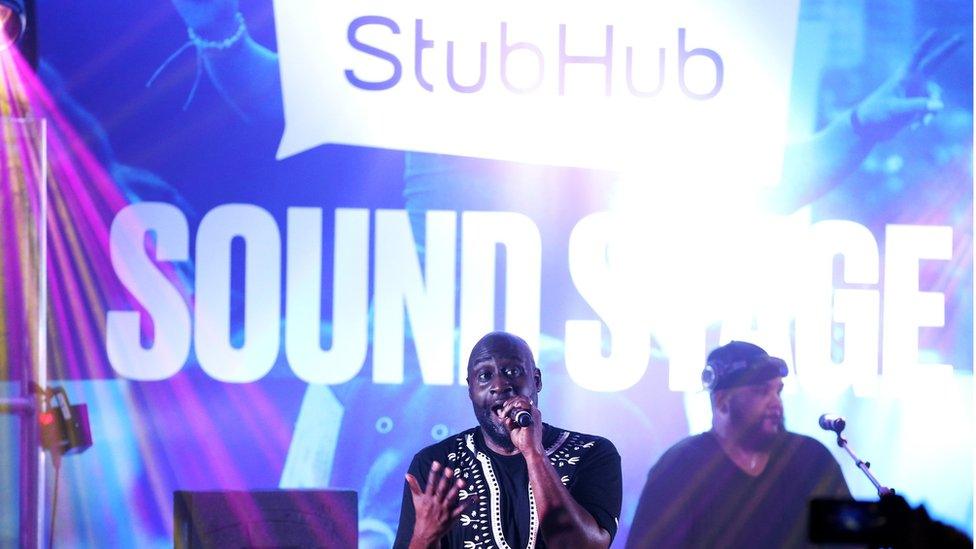Viagogo may have to sell all or part of StubHub, regulator says
- Published

Ticketing site Viagogo may need to sell all or part of StubHub after an investigation by the UK's competition watchdog found the merger of the two firms could lead to higher fees.
The Competition and Markets Authority (CMA) said the deal would reduce competition as the two firms have a combined market share of more than 90%.
Viagogo bought StubHub in February for $4.1bn (£3.1bn).
Viagogo said it would work with the CMA to find a solution.
The CMA's findings are from its provisional report. Its final report is due in December.
"The evidence we've seen so far consistently points in the same direction - that Viagogo and StubHub have a market share of more than 90% combined and compete closely with each other," said Stuart McIntosh, chairman of the CMA inquiry group.
"We are therefore concerned that their merger could lead to secondary ticketing customers facing higher fees and lower quality services.
The CMA said its concerns would be addressed by a full sale of StubHub, while a partial sale would have to include "at least the assets and operations of either StubHub or Viagogo that cover the relevant market - the supply of uncapped secondary ticketing platform services for the resale of tickets to UK events".

The watchdog added: "The CMA is mindful of the significant impact that the coronavirus (Covid-19) is currently having on the live events industry.
"However, the evidence is that Viagogo and StubHub would remain important competitors for the foreseeable future without the merger."
A spokesperson for Viagogo said: "Whilst we disagree with the provisional conclusion that the deal would reduce competition, we look forward to working with the CMA to deliver a comprehensive solution which addresses their concerns."
Refund row
This is not the first time Viagogo has come under the eye of the competition watchdog.
Last year, Viagogo dodged CMA legal action after improving what it tells customers about tickets, including seating information and whether the venue had banned ticket resales.
The CMA welcomed the changes but criticised the site's slowness to respond.
This summer, Viagogo was criticised for refusing to give refunds to people who had bought tickets on its site to events hit by the coronavirus pandemic.
Consumer organisation Which? said the ticketing site had added a clause to its cancellation policy which had left some customers unable to claim their money back.
But Viagogo said the claim was "fundamentally inaccurate" since their policy on refunding customers had not changed.
- Published23 July 2020

- Published25 November 2019

- Published13 December 2019
